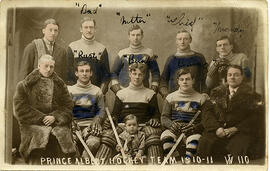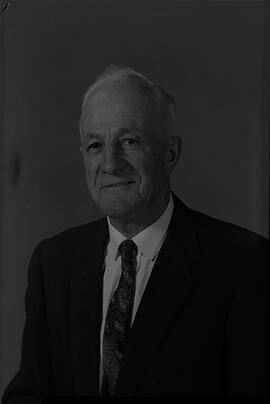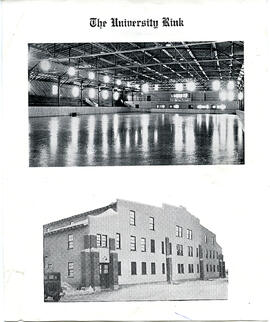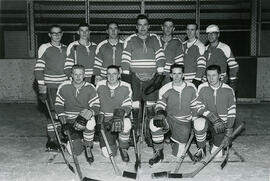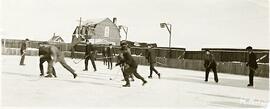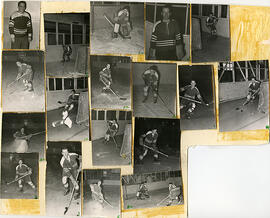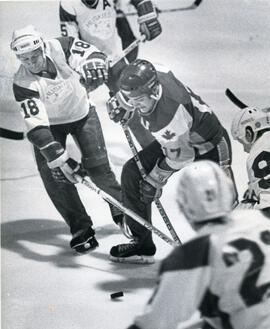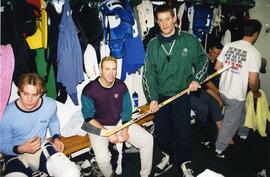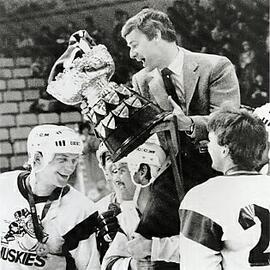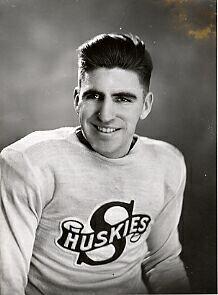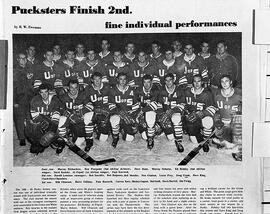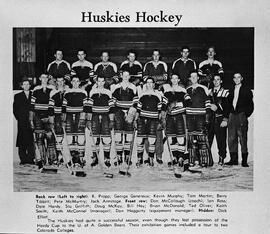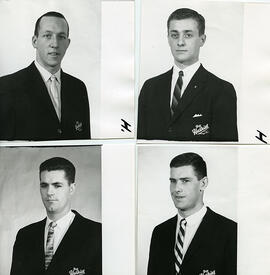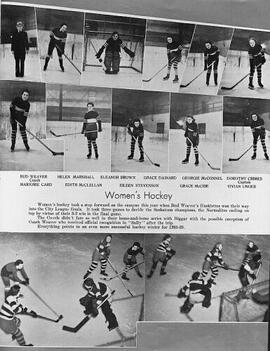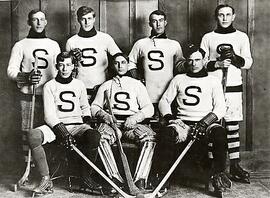Prince Albert Mintos Hockey Team - Team Photo - 1910-1911
- A-10828
- Item
- 1911
Posed group photo of Mintos players and team officials. Standing: Jack Arnold, trainer; J.D. "Dad" Stewart, centre; J.G. "Nitter" Bailey, point; "Chief" McDowell, rover-point; Frank "Mandy" Black, right wing. Seated: Gordon Macdonald, secretary and manager; Russell "Rusty" Crawford, rover; Chester "Ches, Bumb" Leach, goal; Jack "Bruno" Bennett, spare; W.A. Hunter, president.
Bio/Historical Note: The Prince Albert Mintos were a professional ice hockey team in Prince Albert, Saskatchewan. They played in the Saskatchewan Professional Hockey League from 1909-1911. The Mintos won the league title in 1909 after the Saskatoon Stratchonas were disqualified for using ineligible players. They then played the Edmonton Pros for the Fit-Reform Trophy (Western Canadian Championship) and were defeated. The club repeated as SPHL champions in 1911, beating the Saskatoon Westerns in a playoff. They advanced to challenge for the Stanley Cup, and lost to Port Arthur Lake City 12-6 in a qualification series. The Mintos then transitioned to senior competitions, playing for the Allan Cup. The Mintos was later the name of a junior team playing in the Saskatchewan Junior Hockey League and is now (2023) used by a team in the Saskatchewan Midget AAA Hockey League.

